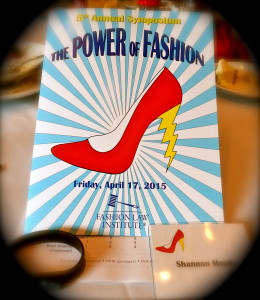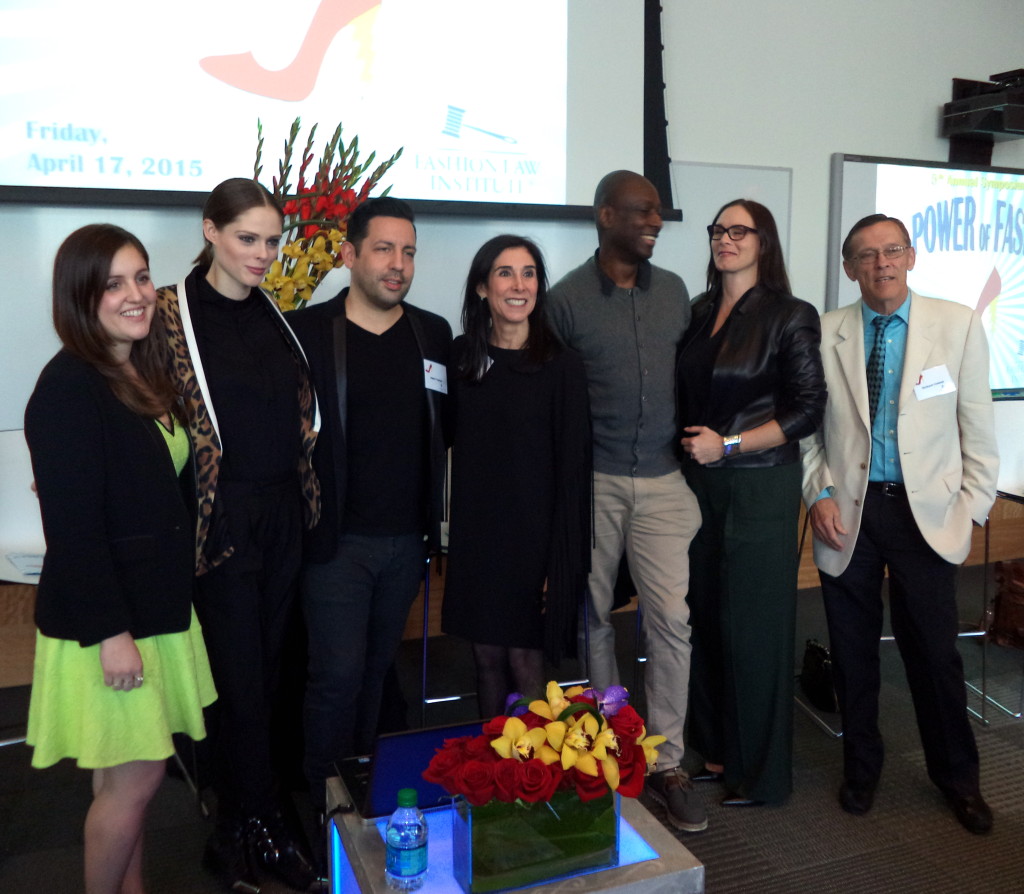 So I did an intro post on Fordham Law School’s annual Fashion Law Symposium, thru the Fashion Law Institute. There were a great deal of captivating panel discussion, thus, my posts on this symposium are being done in multiple individual posts. So here is part 2, ENJOY!
So I did an intro post on Fordham Law School’s annual Fashion Law Symposium, thru the Fashion Law Institute. There were a great deal of captivating panel discussion, thus, my posts on this symposium are being done in multiple individual posts. So here is part 2, ENJOY!
Topic — Pulling the Plug: Fashion Companies, Dissolution, and Bankruptcy
Panelists —
- Laura McCabe of Brandt and Brandt Law PLLC
- James Michael Peck of Morrison & Foerster
- Jay Silverberg of Silverberg Law Firm
- Gary A. Wassner of Hilldun Corporation and Interluxe Holdings LLC
- Moderator — Professor Caroline Gentile of Fordham Law School
I am sure this was an interesting discussion. I missed this one sadly, but I’m positive many found it valuable. It’s not the most fun part of fashion, but with some brands, some companies, it’s inevitable. So it’s good to know about areas such as dissolution and bankruptcy to best equip yourself for how best to wind down your company. It’s like they say in fashion, “one day you’re in, and the next day you’re out.”
Fashion is a seasonal industry, continuously changing. Even if one season you have the best editorial press, it’s no guarantee for financial success. Examples — C. Wonder closing its green doors; Gap closing down its Piperlime division; Kate Spade getting rid of Kate Spade Saturday; and Reed Krakoff suspending operations. So questions that were discussed here — What are the strategic decisions involved when a fashion company considers bankruptcy? How can a fashion house or retailer keep the lights on during reorganization? And does outside investors’ growing involvement with the fashion industry increase the likelihood that an unsuccessful season or 2 will lead to pulling the plug?
Topic — Connectivity: Modeling and the Power of Social Media
Panelists —
- Richard Cleland for the Federal Trade Commission
- James Conran — Artist and Business Manager
- Melissa Wilhelmina Cooper of Wilhelmina Models
- Chris Gray for Elite World Group
- Coco Rocha — Supermodel & Social Media Pioneer
- Wayne Sterling of The Image Management
- Moderator — Doreen Small of Marquart and Small
I was vastly impressed with this panel discussion. I mean first of all, Coco Rocha, top supermodel was present! I was in awe to say the least. She is gorgeous and very well-spoken. But all in all, everyone did a great job here, and that’s important since this was such a huge topic. Basically, models are now more than just runway or editorial for magazines. They are individuals who now have put themselves out there, mainly being very active on social media. With that in mind, how have modeling agencies adapted their contracts and altered their lineups? How will FTC regulations affect models who advertise products thru their social media accounts? And how can models, agents, and attorneys work together to balance the competing challenges of legal compliance and furtherance of models’ careers thru the ever-evolving world of social media?
Models are now being looked at with a balance, audience connectivity versus commercial appeal. Then there comes the issues of endorsements, how this impacts a model’s identification, their branding. And with endorsements comes the major issue of FTC compliance. We all recently heard about Lord & Taylor, 50 bloggers donning the same look, a major social media campaign. Everyone of course failed to mention the bloggers were not being paid, and this too can happen if models are promoting products. One has to make sure when promoting a brand or a product that this is made clear, a conspicuous disclosure.
Event Sponsors
- Kenyon and Kenyon
- Wilhelmina Models
- Denton
Special thanks to CFDA, Diane von Furstenberg, Fordham Law School, Gemma Redux, The Judy & Dennis Kenny Foundation, Levi Strauss and Co., Louis Vuitton Malletier, MarkMonitor, Michael O’Malley, and Pentagram














